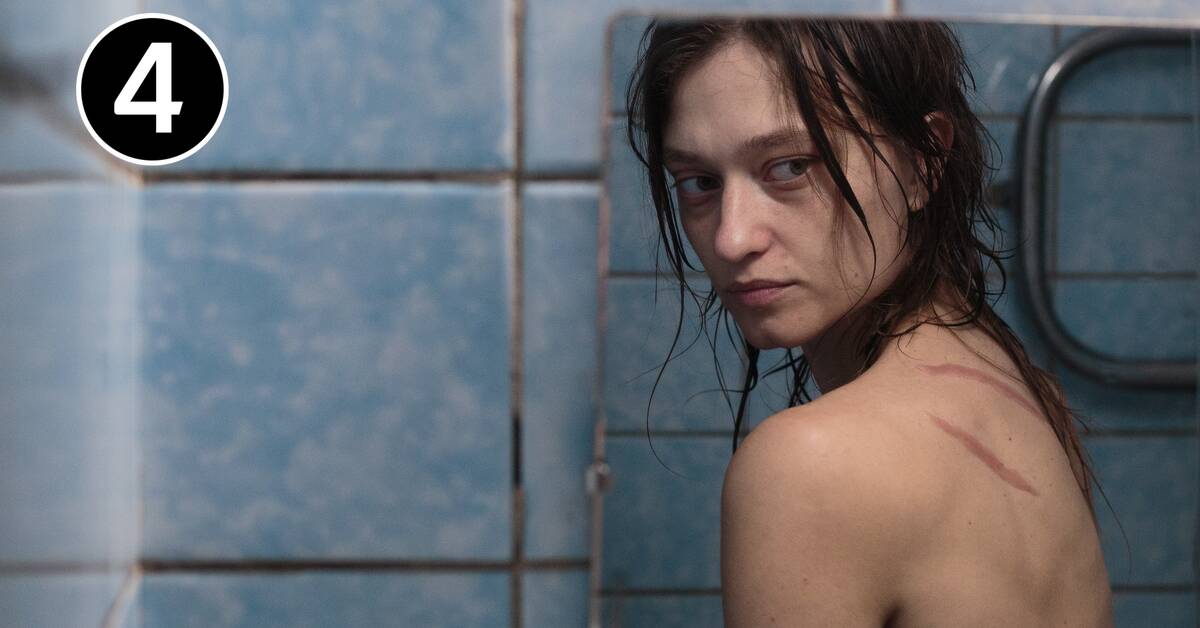Media pressure is high after Lilya's release. She is welcomed as a hero, but when it emerges after some time that she has become pregnant after rape, the goodwill soon turns into its opposite. Not least with her husband, a former soldier who has joined a right-wing paramilitary group that, with the burgeoning nationalism behind it, attacks Roma.
After the suffering in captivity, Lilya looks with new wounded eyes at machoism, glorification of violence and misogyny in her own ranks. She carries her child as an act of resistance in an existence full of devastation and death. It's not something she says herself, her trauma makes her a quiet and hollow staring cicerone at all, but the restrained acting is well accompanied by the nervy image and detail.
Documentary realism is mixed with a creative flow of TikTok larps, preachy internet trolls, ultrasound and distanced drone footage. At some points, the image cracks in instantaneous, pixelated visions of what Lilya has been through – an effective way to give us access to her otherwise closed psyche. Otherwise, the filmmakers deservedly hide a lot of information, let us think for ourselves, or sit in agonized waiting for enlightenment. Stylish. And terrible.
The film premiered at the Cannes festival, three months after the Russian large-scale invasion, making it acutely topical, while its desire to discuss Ukrainian nationalism likely makes it less popular in the war-torn homeland, where it is probably difficult to market nuances.
In a way, the film came a little too late – or far too early, because it's not entirely crazy to think that there will be a peacetime when the nuances are again considered to have a raison d'être. In any case, director Maksym Nakonechnyi and co-writer Iryna Tsilyk have created a spiritual steel bath, a Calvary walk straight into the inhumane hell of war.

